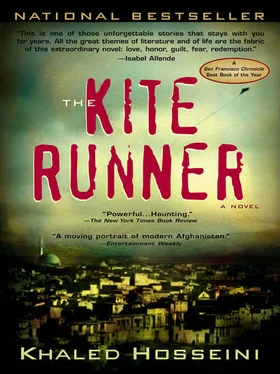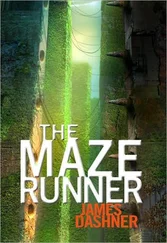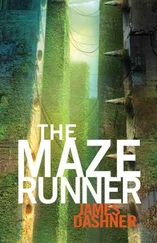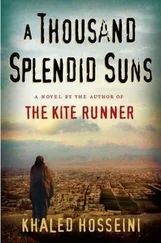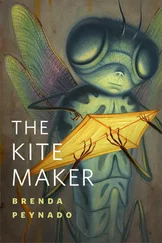I looked at the hallway, saw a group of kids dancing in a circle. A little girl, her left leg amputated below the knee, sat on a ratty mattress and watched, smiling and clapping along with the other children. I saw Farid watching the children too, his own mangled hand hanging at his side. I remembered Wahid’s boys and… I realized something: I would not leave Afghanistan without finding Sohrab. “Tell me where he is,” I said.
Zaman’s gaze lingered on me. Then he nodded, picked up a pencil, and twirled it between his fingers. “Keep my name out of it.”
“I promise.”
He tapped the table with the pencil. “Despite your promise, I think I’ll live to regret this, but perhaps it’s just as well. I’m damned anyway. But if something can be done for Sohrab… I’ll tell you because I believe you. You have the look of a desperate man.” He was quiet for a long time. “There is a Talib official,” he muttered. “He visits once every month or two. He brings cash with him, not a lot, but better than nothing at all.” His shifty eyes fell on me, rolled away. “Usually he’ll take a girl. But not always.”
“And you allow this?” Farid said behind me. He was going around the table, closing in on Zaman.
“What choice do I have?” Zaman shot back. He pushed himself away from the desk.
“You’re the director here,” Farid said. “Your job is watch over these children.”
“There’s nothing I can do to stop it.”
“You’re selling children!” Farid barked.
“Farid, sit down! Let it go!” I said. But I was too late. Because suddenly Farid was leaping over the table. Zaman’s chair went flying as Farid fell on him and pinned him to the floor. The director thrashed beneath Farid and made muffled screaming sounds. His legs kicked a desk drawer free and sheets of paper spilled to the floor.
I ran around the desk and saw why Zaman’s screaming was muffled: Farid was strangling him. I grasped Farid’s shoulders with both hands and pulled hard. He snatched away from me. “That’s enough!” I barked. But Farid’s face had flushed red, his lips pulled back in a snarl. “I’m killing him! You can’t stop me! I’m killing him,” he sneered.
“Get off him!”
“I’m killing him!” Something in his voice told me that if I didn’t do something quickly I’d witness my first murder.
“The children are watching, Farid. They’re watching,” I said. His shoulder muscles tightened under my grip and, for a moment, I thought he’d keep squeezing Zaman’s neck anyway. Then he turned around, saw the children. They were standing silently by the door, holding hands, some of them crying. I felt Farid’s muscles slacken. He dropped his hands, rose to his feet. He looked down on Zaman and dropped a mouthful of spit on his face. Then he walked to the door and closed it.
Zaman struggled to his feet, blotted his bloody lips with his sleeve, wiped the spit off his cheek. Coughing and wheezing, he put on his skullcap, his glasses, saw both lenses had cracked, and took them off. He buried his face in his hands. None of us said anything for a long time.
“He took Sohrab a month ago,” Zaman finally croaked, hands still shielding his face.
“You call yourself a director?” Farid said.
Zaman dropped his hands. “I haven’t been paid in over six months. I’m broke because I’ve spent my life’s savings on this orphanage. Everything I ever owned or inherited I sold to run this godforsaken place. You think I don’t have family in Pakistan and Iran? I could have run like everyone else. But I didn’t. I stayed. I stayed because of them .” He pointed to the door. “If I deny him one child, he takes ten. So I let him take one and leave the judging to Allah. I swallow my pride and take his goddamn filthy… dirty money. Then I go to the bazaar and buy food for the children.”
Farid dropped his eyes.
“What happens to the children he takes?” I asked.
Zaman rubbed his eyes with his forefinger and thumb. “Sometimes they come back.”
“Who is he? How do we find him?” I said.
“Go to Ghazi Stadium tomorrow. You’ll see him at halftime. He’ll be the one wearing black sunglasses.” He picked up his broken glasses and turned them in his hands. “I want you to go now. The children are frightened.”
He escorted us out.
As the truck pulled away, I saw Zaman in the side-view mirror, standing in the doorway. A group of children surrounded him, clutching the hem of his loose shirt. I saw he had put on his broken glasses.
We crossed the river and drove north through the crowded Pashtunistan Square. Baba used to take me to Khyber Restaurant there for kabob. The building was still standing, but its doors were padlocked, the windows shattered, and the letters K and R missing from its name.
I saw a dead body near the restaurant. There had been a hanging. A young man dangled from the end of a rope tied to a beam, his face puffy and blue, the clothes he’d worn on the last day of his life shredded, bloody. Hardly anyone seemed to notice him.
We rode silently through the square and headed toward the Wazir Akbar Khan district. Everywhere I looked, a haze of dust covered the city and its sun-dried brick buildings. A few blocks north of Pashtunistan Square, Farid pointed to two men talking animatedly at a busy street corner. One of them was hobbling on one leg, his other leg amputated below the knee. He cradled an artificial leg in his arms. “You know what they’re doing? Haggling over the leg.”
“He’s selling his leg?”
Farid nodded. “You can get good money for it on the black market. Feed your kids for a couple of weeks.”
TO MY SURPRISE, most of the houses in the Wazir Akbar Khan district still had roofs and standing walls. In fact, they were in pretty good shape. Trees still peeked over the walls, and the streets weren’t nearly as rubble-strewn as the ones in Karteh-Seh. Faded streets signs, some twisted and bullet-pocked, still pointed the way.
“This isn’t so bad,” I remarked.
“No surprise. Most of the important people live here now.”
“Taliban?”
“Them too,” Farid said.
“Who else?”
He drove us into a wide street with fairly clean sidewalks and walled homes on either side. “The people behind the Taliban. The real brains of this government, if you can call it that: Arabs, Chechens, Pakistanis,” Farid said. He pointed northwest. “Street 15, that way, is called Sarak-e-Mehmana.” Street of the Guests. “That’s what they call them here, guests. I think someday these guests are going to pee all over the carpet.”
“I think that’s it!” I said. “Over there!” I pointed to the landmark that used to serve as a guide for me when I was a kid. If you ever get lost , Baba used to say, remember that our street is the one with the pink house at the end of it . The pink house with the steeply pitched roof had been the neighborhood’s only house of that color in the old days. It still was.
Farid turned onto the street. I saw Baba’s house right away.
W E FIND THE LITTLE TURTLE behind tangles of sweetbrier in the yard. We don’t know how it got there and we’re too excited to care. We paint its shell a bright red, Hassan’s idea, and a good one: This way, we’ll never lose it in the bushes. We pretend we’re a pair of daredevil explorers who’ve discovered a giant prehistoric monster in some distant jungle and we’ve brought it back for the world to see. We set it down in the wooden wagon Ali built Hassan last winter for his birthday, pretend it’s a giant steel cage. Behold the fire-breathing monstrosity! We march on the grass and pull the wagon behind us, around apple and cherry trees, which become skyscrapers soaring into clouds, heads poking out of thousands of windows to watch the spectacle passing below. We walk over the little semilunar bridge Baba has built near a cluster of fig trees; it becomes a great suspension bridge joining cities, and the little pond below, a foamy sea. Fireworks explode above the bridge’s massive pylons and armed soldiers salute us on both sides as gigantic steel cables shoot to the sky. The little turtle bouncing around in the cab, we drag the wagon around the circular redbrick driveway outside the wrought-iron gates and return the salutes of the world’s leaders as they stand and applaud. We are Hassan and Amir, famed adventurers and the world’s greatest explorers, about to receive a medal of honor for our courageous feat…
Читать дальше
